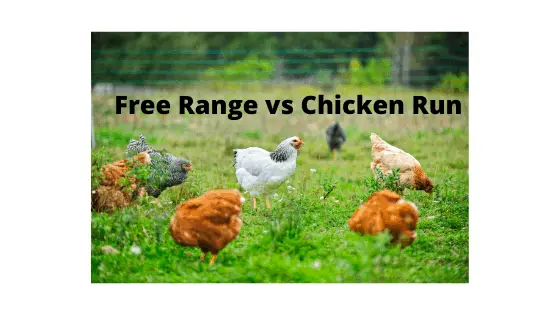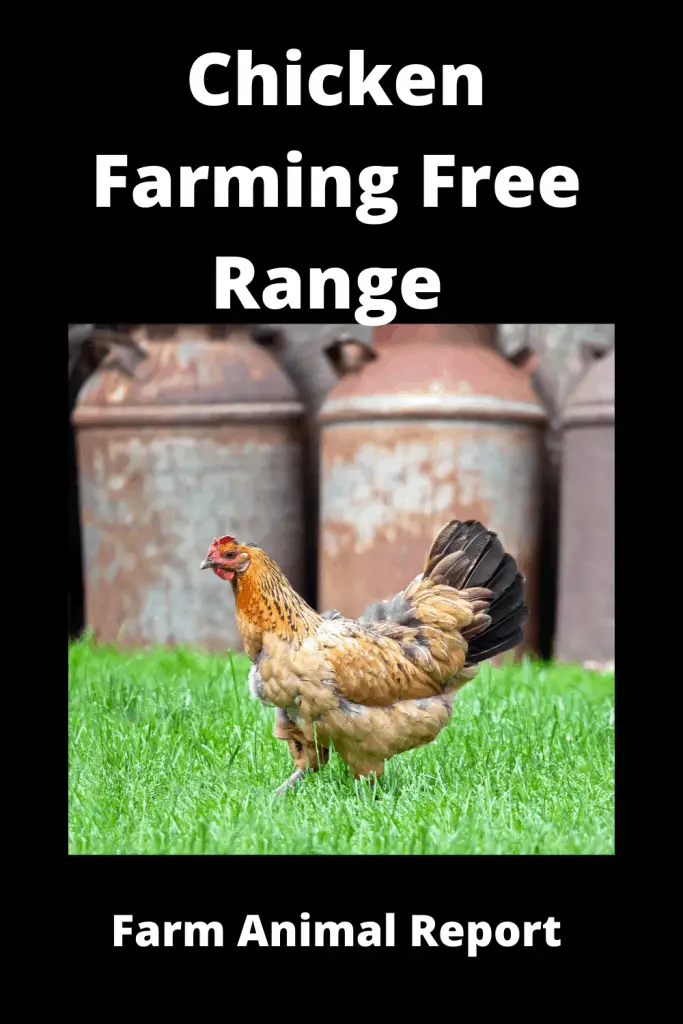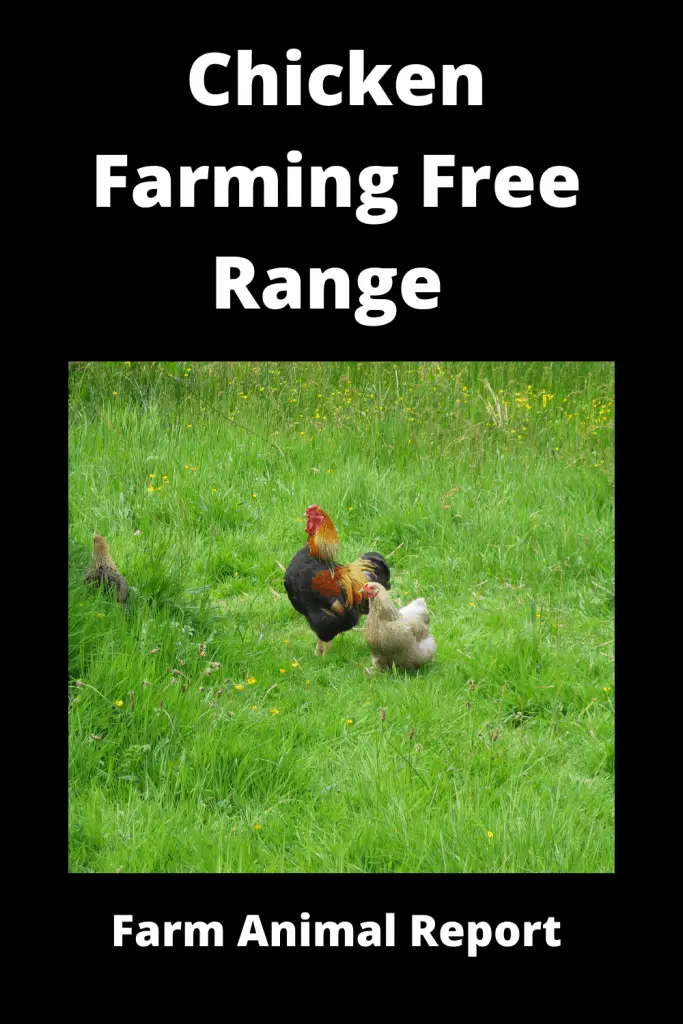The main difference between is free-range chickens are raised outside in open fields rather than inside barns. They may be given access to the outdoors for a certain number of hours each day or can range freely throughout an enclosed area that allows them access to fresh air and sunlight. The number of free-range chicken farms has grown significantly over recent years, primarily due to consumers wanting to know where their food comes from.
Chicken Farming Free Range. When it comes to owning chickens the most basic question on the minds and lips of potential owners is whether to use the free-range or the chicken coop with a run attached system for housing their flock.
The two systems have their pros and cons and sometimes depend on your budget. Let us examine these two systems in great detail, shall we?
Chicken Farming Free Range
Chicken Farming Free Range – Free-ranging refers to the system of raising chickens where the chickens are let out of an enclosed area for all or part of the day. In order words, your flock is allowed to wander outside their coop at will within a fenced area or in the open fields.
12 Ways to Make Money by Chicken Farming—Extensive Guidelines for Chicken Farmers
In modern chicken rearing, free-ranging is divided into two main types.
Types of Free-range
Complete free-range
This is the traditional method of breeding chickens where the chickens have total freedom to explore and roam your entire property, with fences on the edge of your land preventing them from leaving the property. The chickens have access to a wider range of food sources and are usually very physically fit as they cover a lot of ground.
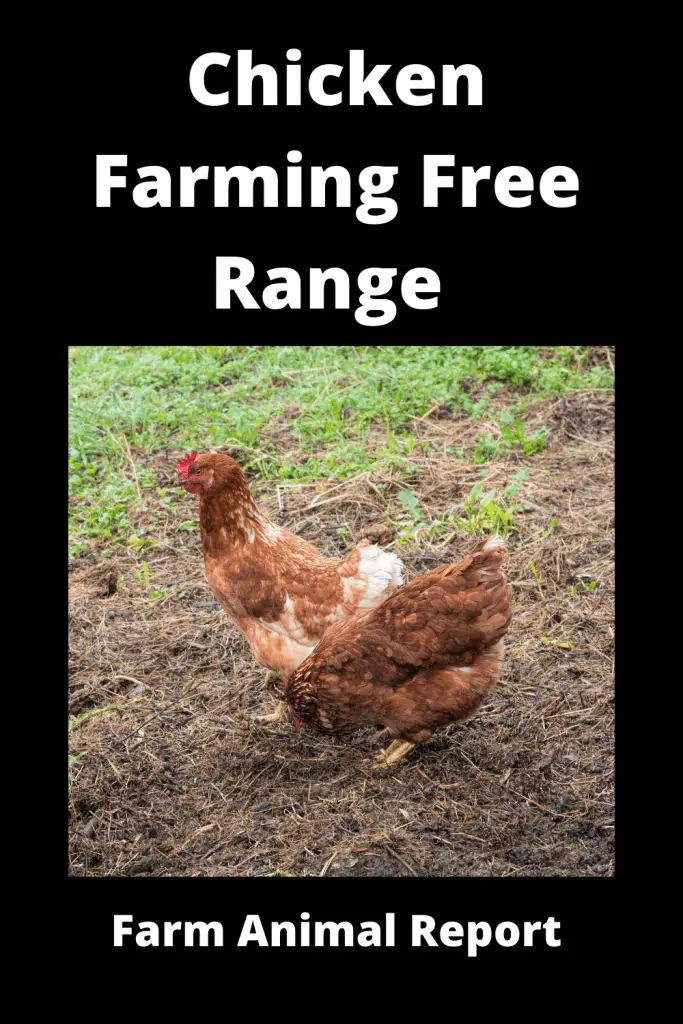
In most cases, the birds a trained to return to the coop at night for roosting; this is usually done by sprinkling grains and calling out to them at sunset.
Complete free-ranging is the riskiest form of rearing chickens and requires that you employ the services of guardian dogs or roosters to keep the hens safe. Even with this measure, expect an occasional loss from time to time.
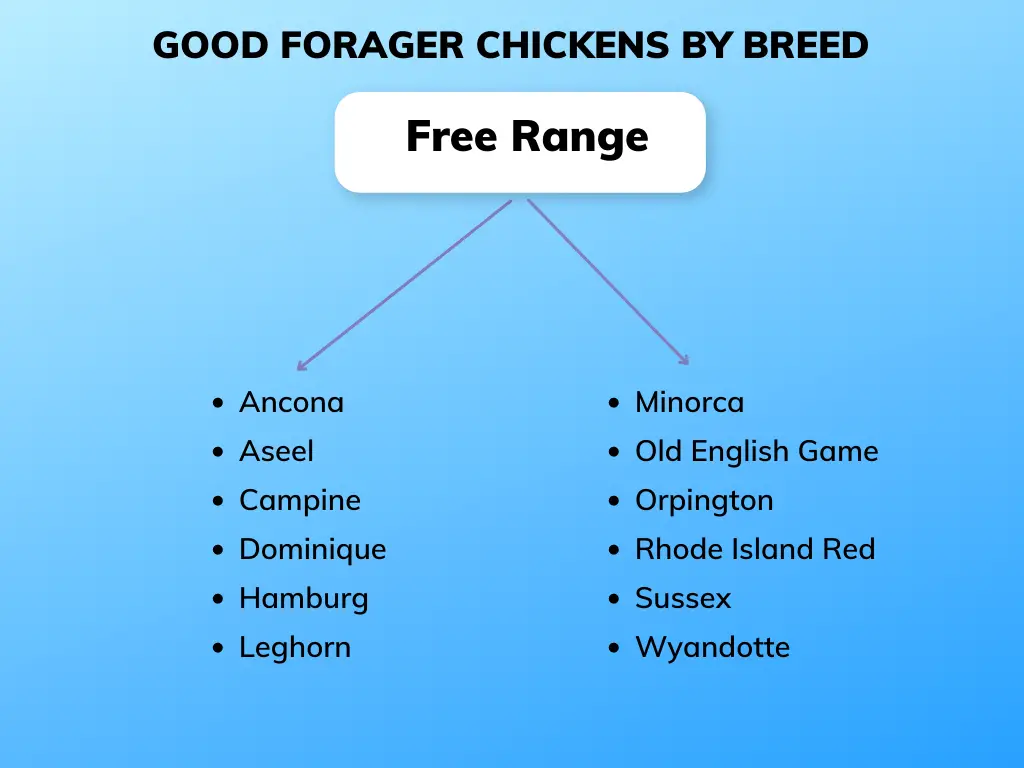
Supervised free-range
Supervised free-ranging is a reformed type of free-ranging. In this method, chickens are only let out to forage and exercise under the watchful eye of a human companion.
Although this method is considerably less risky, a predator can still swoop in and whisk away a hen in your presence if you fail to pay adequate attention.
Pros / Advantages of Free-Range Chicken Farms
- The free-range has proven to be a healthier method of raising chickens. Chickens raised in this system can forage for food like insects and greens that may not be readily available in their immediate environments. The act of walking around also ensures that they get enough exercise to be in great shape.
- Your chickens will look happier if they are allowed to roam as they are more occupied and their natural tendencies like scratching, pecking and digging are satisfied.
- Free-range chickens can be used as a pest control measure. Chickens love to feed on pests like grasshoppers, flies, and fleas, so allowing them the freedom to run around will help reduce the prevalence of these pests in your surroundings. Sometimes chickens go as far as killing small mammals like mice and even smaller snakes.
- Since free range chickens forage for different kinds of food, this will help you save cost in terms of the amount of money you budget for feed.
- Free-range chickens are less prone to bad behaviors like cannibalism and pecking of feathers.
- About 70% of what free-ranging chickens consume is protein and this affects the quality of eggs they produce, as well as their lifespan.
- Some scientists suggest that free-range chicken eggs are more nutritious to humans than other kinds of eggs. This is because, as the chickens are allowed to roam and forage for food, they feed on grasses that have high levels of omega-3. Omega-3 is quite deficient in the diets of most Americans, unlike omega-6 which is consumed 10 times more. Scientists have however warned that omega-6 and omega-3 be consumed in equal proportion to reduce the risks of degenerative diseases. There are also suggestions that free-range chicken eggs are higher in vitamins such as vitamin A (beta carotene), vitamin E and vitamin D.
- Free-ranging chickens produce better tasting eggs
- Chickens can be quite entertaining to watch. If your chickens roam freely you would often encounter them displaying funny antics which might just brighten your day.
- Chickens poop a lot so your free-ranging chickens will provide natural fertilization for your lawn, so much so that you may not be required to personally fertilize your lawn for years.
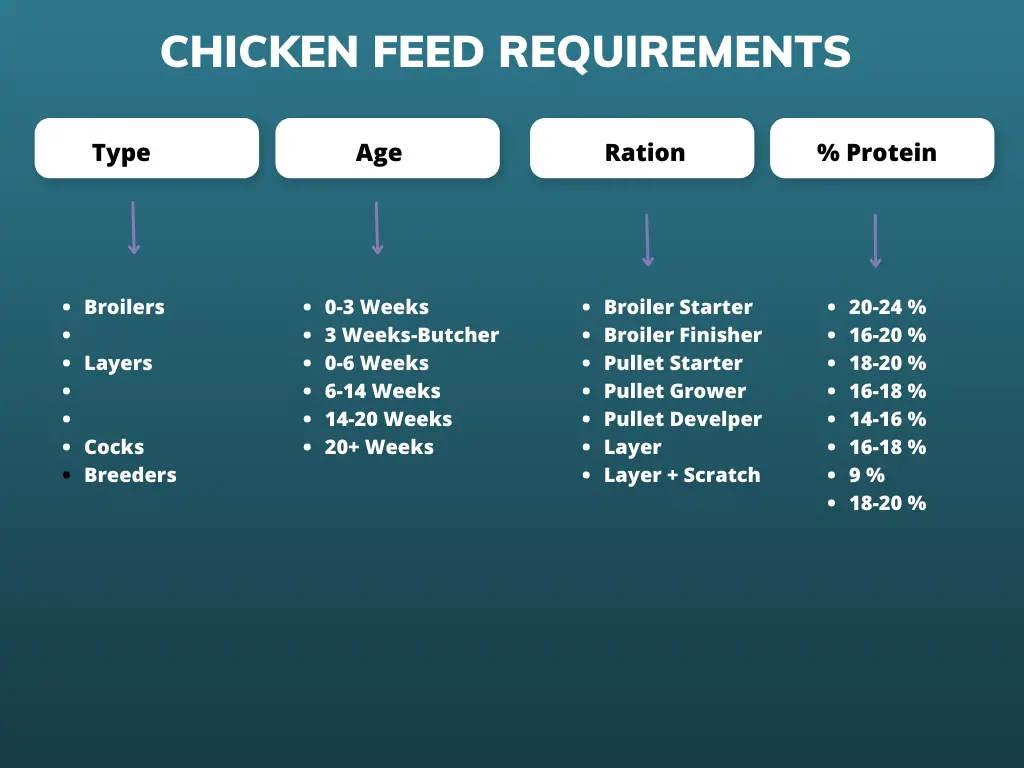
Cons / Disadvantages of Free-Range Chicken farming
- You are going to have a harder time gathering the eggs if you run a free-range system. Because the chickens are allowed to roam, they can decide to lay their eggs wherever they feel comfortable at – which can be different from one chicken to another. This means that you would have to search for the eggs and be careful not to step on them in the process. Also, since the eggs are not laid in the nesting area, chances are that you may find them damaged.
- When you allow your chicken complete freedom to walk around your surroundings, it’s not unusual for one or two to go rogue and wreck your garden now and then.
- Perhaps the biggest concern for this system is that your chickens become easy targets for predators. There are loads of predators out there that love feeding on chicken and chicken eggs. For example, coyotes, foxes, hawks, snakes, etc., are all always sniffing around and waiting for the right opportunity to strike.
- Free-range chickens poop everywhere. They poop on the car, porch, garden, tables, and chairs, anywhere at all. So you and your visitors will probably step on bird poop now and then, and you would have to endure the stink when they poop in uncomfortable places.
- You can’t find the space to operate free-range if you live in the suburbs or more congested metropolitan areas.
- Free-range chickens are harder to manage and keep account of, it’s not unusual for chickens to get lost without your knowledge.
- Your chickens can be a nuisance to your neighbor
Solutions to counter the Disadvantages of Free-Range Chicken Farming
Con / Solution – Egg Gathering
To make the job of gathering the eggs much easier, you need to try to get your hens to lay their eggs in the nest boxes.
- One way to do that is to understand that most hens lay eggs early in the day, so you keep them in the coop for the early parts of the day. This way you minimize the chances of them finding somewhere cozy outside the nesting area to lay eggs.
- Hens are naturally wired to look for cozy and comfortable places to lay their eggs if you make your nest boxes the most comfortable place available to their reach, then they are more likely to lay their eggs there.
- Collect the eggs regularly; a nesting box full of eggs is not going to be an attractive spot to lay more eggs.
- Try to ensure your chickens know the difference between the roosting area and the nest boxes. You can do this by not allowing any of them to roost in the nesting area if you find a hen settling down to roost in the nesting area, shoo her away. This is because your hen won’t feel comfortable enough to lay eggs in the nest boxes if she takes it as her roosting spot. So when your birds return to roost at sunset, ensure they don’t go roosting in the nesting area.
- Try to provide the right number of nest boxes; one for every four to six hens should be ideal.
Con / Solution – Garden Destruction
Apply the following measures to protect your garden from chickens
- You can keep your flock away from your garden by planting some herbs that repel them. Certain plant types give off scents that are repellant to chickens, and they would naturally avoid areas where these herbs are planted. Perennial herbs like mint, lemon balm and thyme are some of such plants. Planting these herbs around your garden is a great idea.
- Build a fence around your garden to discourage access or simply construct a cage-like fence made of chicken wire above the plants of interest.
- Sprinkle spices around the perimeter of your garden and on the grounds between the plants. This is because chickens are usually repelled by strong smelling spices like curry powder, garlic, pepper, etc., so sprinkling these in your garden will help keep the hens away. If a stray hen finds her way into the garden, the spice-covered grounds will produce an uncomfortable sensation on her feet and claws which will spur her to retreat.
- You can keep chickens uninterested in some flowers by planting them in vases. Most chickens won’t bother to put in the effort to peck on flowers that are in vases.
- Try to be on hand to shoo the chickens away from your garden. You can do this by spraying water on rogue chickens that wander into the garden with a garden hose, not enough to hurt them, but certainly enough to drive them away. Doing this consistently will pass the message that this area is out of bounds to all birds.
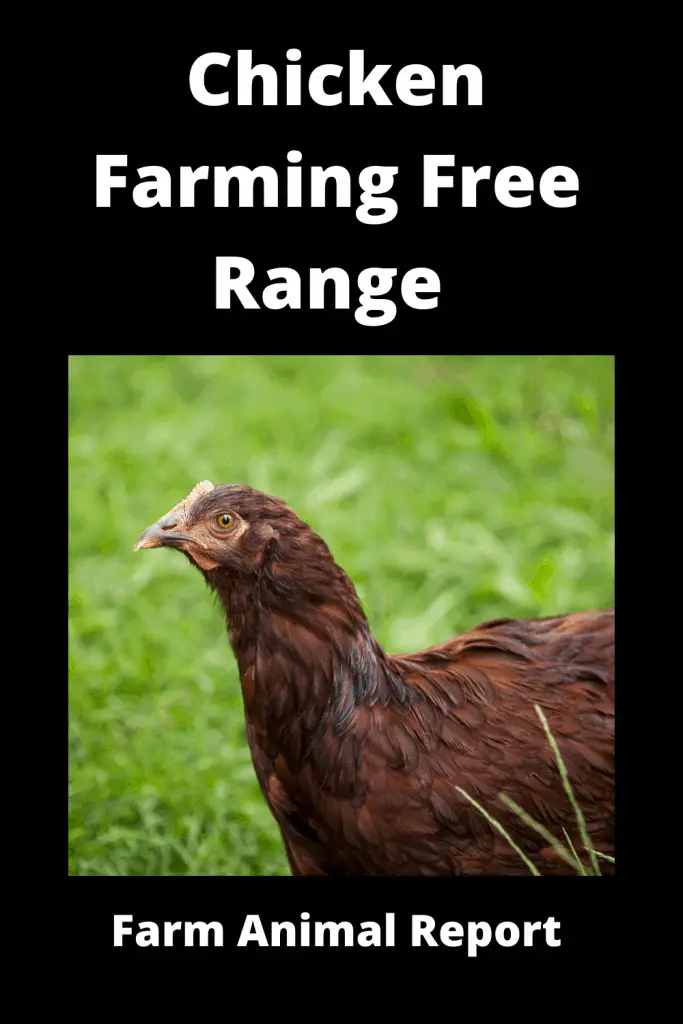
Con / Solution – Predators
- To checkmate the dangers of predators, it might be helpful to have a guardian dog or more than one for the chickens. The dogs can help to discourage the listed predators from attacking and also defend the chickens should a predator attack.
- It would be a good idea to erect an electric fence around the perimeter for the safety of your birds. Electric fences are usually cost-effective and will effectively ward off most predators by land.
- You can also breed roosters. Roosters are usually big and strong enough to defend the hens in the case of an attack.
- Get innovative and create safety shelters across every few feet, shelters into which your chickens can run if they are under attack. Plastic gallons cut lengthwise or construction of a wire mesh arc covered with hay can suffice.
- It might also help to breed only chickens that blend with the landscape so they don’t become easy targets for flying predators.
Con / Solution – Poop Everywhere
To prevent your chicken from pooping everywhere, try the following
- Put a fence around the restricted areas
- Use a car cover to cover your car or park in the garage
- Constantly drive them away from your porch. For this, it will be useful to have a garden hose connected to a water source within arm’s reach at all times. Eventually, the chickens will get the message, though you may have to begin the cycle over again with the emergence of new chicks.
Con / Solution – Space Needed
The lack of space to practice free-ranging is not a problem that can be easily solved as it is not a technical problem, but rather a problem of location. The best you can achieve if you live in a densely populated region is a chicken coop with a spacious run. If there is no much room in your run, you should consider owning fewer chickens.
Con / Solution – Chicken Loss
- To ensure that you don’t lose touch with your flock, you would need to do a headcount regularly (possibly every night) to ensure that your chickens are complete and none have fallen into any form of danger.
- It makes sense to keep your chickens confined in a coop for the first few years of their lives. This will help them become accustomed to the coop as the place for roosting and then they are more likely to return every night to roost.
Con / Solution – Neighbor Aggravation
- Restricting your chickens’ movement by fencing your perimeter will prevent them from getting into your neighbors’ yard.
- If you live in the suburbs or similar environments with neighbors close by, you might want to avoid getting a rooster. Most neighbors won’t appreciate a cock crowing and interrupting their sleep at dawn.
Chicken Run
A chicken run can be described as a fenced or enclosed area within which chickens may move freely. Chicken runs are usually attached to a chicken coop, and function like a playground for chickens housed in the coop. A chicken coop is a pen or small house where chickens are kept.
Chicken runs are commonly erected with strong water-proof timber or pines and covered with galvanized wire mesh on the sides and over the top. They are usually furnished with a door or gate (depending on how big the run is) through which a human can gain access.
The galvanized wire mesh is used to surround the chicken run instead of a wooden wall and roofing so that the chickens can get access to adequate sunlight and ventilation, while also serving the purpose of keeping predators out. It’s always a great idea to provide a shaded area within the run where your chickens can shade from the sun.
To ensure that your chicken coop and run are well protected from predators, the wire mesh should be buried deep enough to deter predators from getting through. Many predators can and will attempt to dig underneath the wire, and if it’s not deep enough, they will gain access to your birds. Your wire mesh should be between two to four feet.
Finding a good space to locate your chicken run can be quite tricky as not all spaces might be good for them. For example, you shouldn’t site to chicken run in a muddy environment or around stagnant water as these kinds of environments can lead to diseases.
Growing certain types of flowers, bushes, and shrubs in and around your chicken run is a great way to further protect them from the sight of potential predators. These bushes and shrubs can also provide shade for your birds in hotter weather. It’s important to note that some plants may be poisonous to your chickens, ensure to carry out proper research before you grow any plant in or around your run.
Advantages of Chicken Run
- Birds bred in a chicken run are easier to manage (you have more control).
- If you use the chicken run system, you worry less about your birds contracting diseases from external sources. Because your chickens are confined within a restricted space, chances that they would come in contact with wild birds – that are often carriers of different strains of bird flu – are reduced to almost impossible. Also, since your chickens’ space is restricted, you can decide which visitors have access to their living area. This way you can reduce the danger of introducing foreign diseases as humans that also have birds or have come in contact with some can be carriers of a bird-killing virus.
- It’s much easier to protect birds that are raised in chicken runs from predators than free-range chickens. Chicken runs usually have some sort of protective housing otherwise referred to as the nesting area and also have wires strung over the run area that tends to discourage flying predators. The wires are mostly sufficient to protect against other types of predators.
- Chicken runs allow you easy access to your chickens as you always know where they are.
- Collecting eggs is a much easier and straightforward process in the chicken run system. You will find that most hens will lay their eggs in the nesting area you provide making it easier to access any time. Of course, every once in a while you will find an egg or two in the run area, but that’s just about it.
- You’ll find it easier and more convenient to go on short vacations knowing that your chickens are secure within the chicken run.
Cons / Disadvantages of Chicken Run
- Chickens are naturally lively animals, as a result, chickens kept in pens and runs are more susceptible to developing bad behavior than chickens in a free-range system as they have less freedom to stretch and play around. Bad chicken behaviors like bullying, cannibalism and feather pecking are all symptoms of boredom and more predominant in chickens kept in cages.
- Operating a chicken run means you will spend more time cleaning. The question is: do you have that much time?
- Because chickens have a pecking hierarchy, some hens may not be allowed to get enough food as they are all confined in one space.
- If your run is not big enough, or there are a relatively higher number of birds in your run than is comfortable for them, then your birds are likely to become stressed due to overcrowding.
- Flies are likely to be a nuisance if you use a chicken run. This is a result of the small area where the chickens live and excrete thereby making the stink concentrated.
Solutions to a Chicken Run
Con / Solution Dust Bathing
To be innovative, you need to make the chicken run more interesting. Below are some ideas on how you can go about that
- Make provision for bare patches of ground within the run for dust bathing. Chickens love bare patches and they would instinctively put them to use for their entertainment.
- You can ensure there are food scraps like grains randomly sprinkled within the run for them to peck at throughout the day. Your chickens will move around and dust-bath meaning they would inadvertently bury some of the grains, and then they would need to dig it up which provides more entertainment and keeps them occupied.
- There are loads of different toys and chicken swings available for you to purchase and keep your chickens busy.
- Try hanging different types of treats from the top of the run to give them some sense of adventure.
- You can furnish your chicken run with perches at different heights to encourage your chickens to exercise their wings. For this, your run has to be high enough so they can fly some feet above the ground.
Con / Solution More Frequent Cleaning
There is really no avoiding cleaning up the coop and running regularly, it’s necessary to avoid an outbreak of diseases. The only alternative to cleaning it up yourself is to get help to do it for you.
Con / Solution Multiple Food Feeders
- One way to ensure that every hen gets a reasonable portion of feed is to feed your birds using multiple food trays.
- In addition to using multiple food trays, you can also leave a slightly higher portion of feed than necessary. It’s important to note that if there is excess feed, it should be dry and lack moisture to attract flies.
Con / Solution Larger Run / Sized to Chicken Quanity
If you decide to restrict the free movement of your chickens, then you should try to ensure that your Run is big enough to comfortably accommodate the number of chickens you own.
Chasing insects, stretching their wings, playing in the dust, and running around are natural behaviors of chicken, so while you may not be able to create enough room for all of these behaviors, you should try to make room for as many as possible.
Con / Solution Minimize Standing Water
To minimize fly infestation, try the following
- Keep water out of the run: it’s important to eliminate the most usual source of moisture in a chicken run. Keep the water outside the loop at a short distance where you can easily take your chickens to have a drink daily.
- Use sand floors for your coop: using sand as your chicken coop ground cover is a great idea as it tends to absorb chicken droppings and dries them out. This reduces the stink from the coop and also reduces moisture.
- Cleanup regularly: The best way to avoid pests like flies from infesting your chicken run is to regularly clean the pen . Having a cleaning schedule can help you to achieve this, maybe cleaning the coop every night.
- Avoid having stagnant water: no water should be left standing in or around the coop as this can become a breeding ground for flies.
- Cleanup after feeding: apart from cleaning the poop every day, you should endeavor to cleanup remnants after you feed your chickens. Food items like fruits especially should be disposed of immediately after the meal to avoid an accumulation of flies.
A compromise?
It might just be possible to harness the advantages of both free-range and chicken run, well, that depends on the number of chickens you own though. Have you ever considered using a chicken coop on wheels, with a run attached to it? Let’s take a look at this type of housing for a moment.
Some people with a few numbers of birds are utilizing chicken tractors. A chicken tractor, sometimes called an ark, is a mobile chicken coop that allows you to move your chickens to fresh locations from time to time. This way your chickens get a fresh supply of grass for their “green needs”.
If you choose to do this, you might want to consider making the run attached to your coop big enough, with enough room for each bird to move around and stretch its wings. With this, you have combined the advantages of free-range and chicken run, with none of the disadvantages.
Here you go! With the above information, you can decide which of the above systems better suits your budget, location, and preferences.


